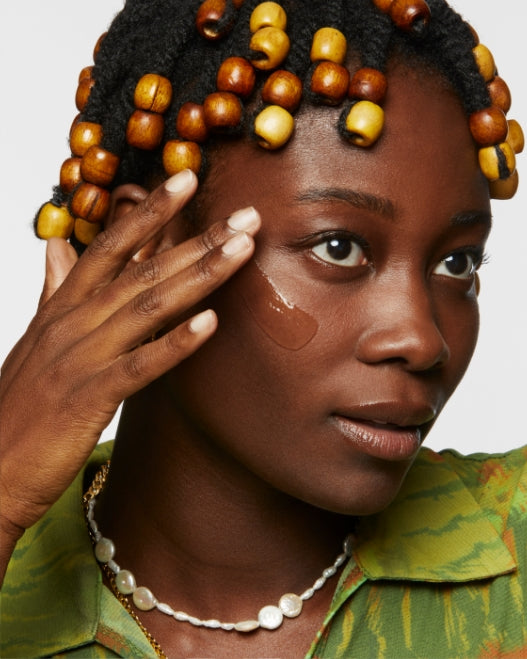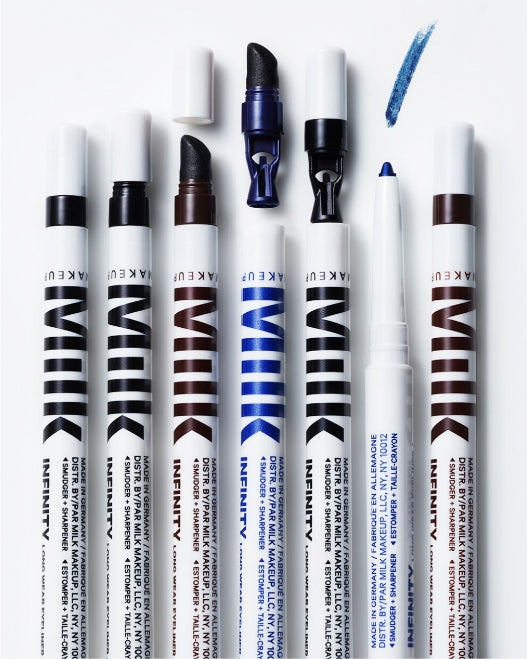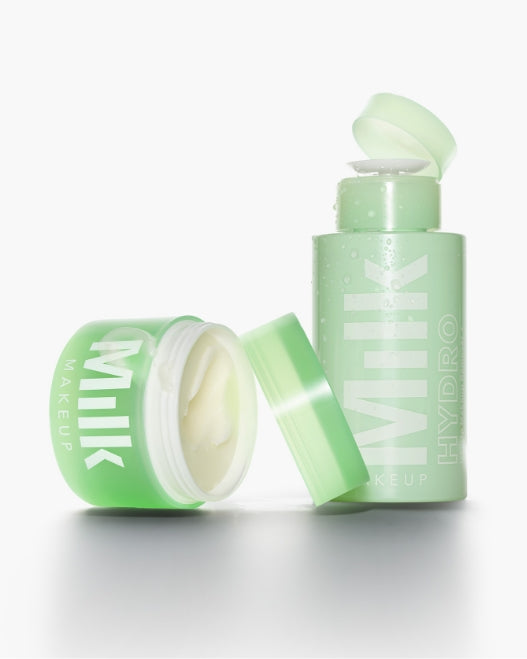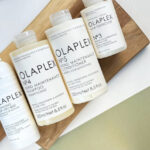If you’ve ever had the misfortune of being on the business end of a raging sunburn, chances are you’re familiar with the benefits of aloe vera. This desert plant has the unique ability to soothe angry, irritated skin in what feels like an instant. But the power of aloe vera for your skin goes beyond soothing scorched complexions—this particular plant is also full of minerals, vitamins, antioxidants, anti-inflammatory properties, and hydrating compounds that can address a range of other common skin issues and side effects.
We spoke with dermatologist Marisa Garshick, M.D., F.A.A.D., to get the scoop on aloe vera benefits for skin and healthcare, from what it does, to all the surprising ways you can use aloe vera for your face and body. Keep reading to learn more.
What is aloe vera?
There are hundreds of different species of the aloe plant, but the one you’re most familiar with is the plant called the aloe barbadensis Miller (aka, aloe vera). It’s a type of succulent that grows in dry desert climates around the world, including the American Southwest.
While this medicinal plant itself looks rather unassuming, it hides one of the most beneficial parts in the aloe vera leaf. “The innermost leaves are rich in water and comprised of vitamins, enzymes, minerals, sugars, and more,” says Dr. Garshick.
What are aloe vera’s benefits for skin?Aloe vera gel’s anti-inflammatory and antiseptic qualities give it the ability to handle a lot of different skin concerns while being safe for every skin type. In addition to its traditional uses as an herbal remedy for cuts, bug bites, and wound healing, you can also try using over-the-counter aloe gel for the below issues. 1. Treating acne:Anyone experiencing acne can benefit from aloe’s antibacterial, antiseptic, and antioxidant nature. “Aloe vera gel contains salicylic acid, which can also help with breakouts such as blackheads and whiteheads,” says Dr. Garshick. When combined with other complementary acne-fighting ingredients, aloe can actually boost their effectiveness. According to Dr. Garshick, clinical trials and research have shown that combining aloe vera gel and tretinoin (a retinoid commonly prescribed in the treatment of acne) boosted the tretinoin’s efficacy more than simply using it on its own. Its moisturizing properties can also aid in the drying side effects of acne treatments. 2. Hydrating dry skin:“The leaf of the aloe vera plant is rich in water, particularly in the innermost layer of the leaf, so it helps to hydrate the skin and lock in moisture,” says Dr. Garschick. “The sugars, also known as mucopolysaccharides, help to retain moisture in your skin.” If you’re looking to hydrate, you can’t go wrong with the use of aloe vera juice for dry or dehydrated skin. |
 |
3. Soothing eczema:
Beyond simple moisturization, aloe is also effective at soothing skin conditions that come with severe dryness and flaking. “Because aloe vera moisturizes your skin, it can be helpful for those with dry skin and eczema,” says Dr. Garshick. “It can also help soothe your skin and reduce inflammation, making it useful for those with flaky, red patches.” Aloe vera juice is also a great ingredient to treat psoriasis and dermatitis.
4. Anti-aging benefits:
The effects of aloe vera extract may not be as buzzy as niacinamide or vitamin C, but it also features some of the same anti-aging benefits. With its array of antioxidants and vitamins, it protects against environmental aggressors and the free radical damage that can cause premature aging. It can also ramp up your skin’s collagen production.
5. Soothing sunburn:
The main reason topical aloe vera is so effective at calming sunburned skin, says Dr. Garshick, is the same anti-inflammatory quality that makes it a breakout-fighting, anti-aging powerhouse in dermatology. “Aloe not only helps to soothe and calm your skin, but it can also help to protect the skin from free-radical damage,” she says. It reduces redness and irritation and shortens healing time, allowing your skin to recover after being burned. You’ve probably experienced the efficacy of aloe vera in treating what can feel like a second-degree burn after spending a day in the sun.
Which Milk Makeup products contain aloe vera?
At Milk Makeup, we’ve incorporated the health benefits of aloe vera into our Hydro Grip Fam, Hydro Ungrip Fam, and Vegan Milk Fam. Try our Hydro Ungrip Makeup Removing Cleansing Balm, which is made with aloe vera juice, blue agave, hemp-derived cannabis seed extract, and hyaluronic acid. It dissolves away makeup, SPF, dirt, and excess oil without leaving a residue or stripping skin of its natural hydration.
Follow that with our Milk Makeup Vegan Milk Moisturizer for an extra-nourishing double cleanse, and some extra aloe vera supplementation. And, because you can’t have your skincare routine have all the fun, our Infinity Long Wear Eyeliner has a creamy formula that’s infused with aloe vera, ceramides, and avocado oil to soothe and nourish your lash line as it provides 12 hours of budge-proof, intense color. Our Cooling Water Jelly Tint is also spiked with aloe vera, which feels soothing on your lips and cheeks when you glide it on.
If the only time you reach for aloe vera products is after too much fun in the sun, it’s time to give this desert plant a place in your regularly scheduled wellness and beauty routine. See what a difference aloe vera’s soothing, hydrating, and anti-inflammatory powers can make for your skin.
 |
 |
Meet The Expert
Marisa Garshick, M.D., F.A.A.D. (she/her) is a leading board-certified dermatologist serving patients throughout Manhattan, New York at MDCS Dermatology: Medical Dermatology & Cosmetic Surgery, as well as an assistant clinical professor of dermatology at Cornell – New York Presbyterian Medical Center. Dr. Garshick provides a wide variety of cosmetic and medical procedures and services including treatments for acne, eczema, hyperhidrosis, moles, psoriasis, rosacea, signs of aging, skin cancer, skin tags, vitiligo, and wrinkles.


